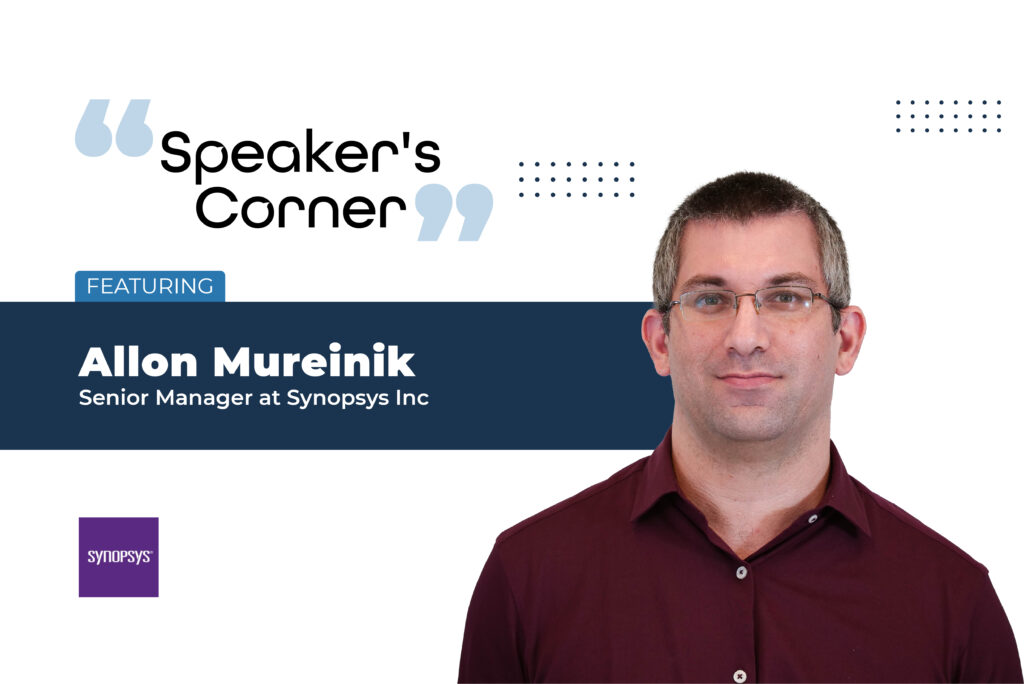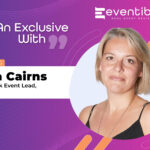
Speaker’s Corner: Featuring Allon Mureinik, Senior Manager at Synopsys Inc
Tell me about the Software Integrity Group (SIG) – it’s work and projects…
Synopsys’ Software Integrity Group (SIG) is dedicated to enabling development teams build secure, high-quality software, faster. Our solutions offer a comprehensive set of application security testing (AST) tools to detect security, quality, and compliance issues in proprietary code, open source and third-party dependencies, application behavior, and deployment configurations, allowing our customers to address risk wherever it resides.
The IT industry sector is vast, what are the challenges that most affect your business? Are you engaging in any kind of problem solving?
The world of application security moves in an incredible pace, and it’s out challenge to keep up with it. There’s a delicate balance between keeping up with current events and technologies and buying into the hype. As a security professional, it’s very easy to adopt a purist point of view and raise a flag every time you see a piece of customer code that isn’t written exactly like you’d write it.
But ultimately, this would do your customers a disservice. There’s a bug difference between something that isn’t to your liking and something that’s actually vulnerable, and our challenge as providers of AST solutions is to walk this line and provide our customers with results that are accurate, verifiable, and most important – actionable.
COVID-19 and the pandemic has mandated change in the way we go about business and operations. How has this time influenced you? What are the trends you see within the sector?
I’m a big believer in the saying “if you stay ready you don’t need to get ready”. Naturally it took some adjusting to essentially move our entire organization to work remotely overnight, and it took some time until people who weren’t used to work from home set up their home offices and figured out their new daily schedule, but we already had all the important building blocks in place – effective asynchronous communication instead of face-to-face meetings and employees who are empowered to innovate and make decisions for themselves instead of having to micromanage them. Once you have the key cultural elements in place, the adjustment becomes much easier, some may say trivial.
What is your biggest objective as a speaker?
I’m a teacher at heart. Which is also sometime a problem, because I’m also an introvert at heart. Public speaking is my way of challenging myself to do something out of my comfort zone in order to share ideas I’m passionate about.
Could you share with us the points of discussion (the input that you provided) during the conference you recently spoke at…
I recently gave a talk at FOSDEM where I discussed cognitive biases and how they may stand in the way of making open-source communities truly inclusive. One of the pieces of (anonymous) feedback that stuck with me was that, and I quote – “Open source has nothing to do with Communism”. While I agree with this statement, I still have no idea what I said in that talk that may have caused someone to think otherwise. Presumably, it’s my own unconscious cognitive bias that prevents me from seeing it.
As a leader, what are the factors both professional and personal that drive you? What keeps you going?
I’m energized by my team. I love seeing people grow and meet their potential. When you start managing engineers you often make the mistake of telling them what to do. Later on you get to the point where you only have to tell them what problem they should be solving and have them figure out the details. When your engineers start coming to you and telling you what they think the team should be doing, you know you’ve arrived.
In your opinion, do digital events give you a similar level of feedback/result vis-à-vis the live versions? What would you say were the biggest pros and cons of both formats? Which do you prefer?
Virtual, remote, events have several major advantages. First, they remove many of the limitations in-person events have, and make them accessible to people who could not partake in them – either because the event wasn’t accessible, because they couldn’t afford the travel, or even something as simple as not being able to be away from home for a full day or two. The main disadvantage of virtual events is the lack of spontaneity, or “hallway track”, if you will. A lot of the more rewarding interactions I had at conferences were unplanned, unscheduled conversations with other attendees while standing in line for coffee or waiting for a session to start. Online events often have chat functions or even open video rooms, but it’s just not the same.
What is your take on in-person events? Do you prefer in-person events as compared to hybrid or virtual? How soon do you think in-person events would return?
I must admit I personally enjoy in-person events more than virtual events, but their undeniable advantages, coupled with the fact that it seems we’re still a long way from beating this pandemic means it will be a while until we see large scale in-person events again.
In your opinion, what are the top 3 challenges to returning to ‘In-Person’ events? How could we mitigate risks?
The main challenge in running an in-person event right now is public safety – keeping everyone healthy and preventing the pandemic from spreading. There are a number of measures that should obviously be observed – mandating vaccination certification from all attendees, mandating face masks be worn at all times, setting up the conference so social distancing can be observed and making hand sanitizer easily available. To be honest, though, the safest way to run an in-person event right now is not to run it. I cannot think of any event important enough to risk my or anyone else’s health to attend in person instead of as a virtual event.
Eventible has recently launched a B2B Interactive in Person Event Tracker, tell us what you think? Do you think this is useful?
As I noticed above, right now I think holding an in person event is careless, and don’t attend such events. When the world goes back to normal, I’m sure this will be useful.
Eventible.com is a review platform specially catering to B2B events. Given how review-driven our lives have become today, do you think reviews will bring in a level of transparency to the events industry? Would you rely on event reviews from other speakers if you had to make a speaking decision?
Quite possibly. I’ve spoken at many different events, and can say that the level of professionalism, not to mention the attitude, of the organizers can make a huge difference on your experience as a speaker.
Finally, do you have a favourite mocktail or drink? We’d be delighted to know.
I’m not a big mocktail, or cocktail fan. If I’m celebrating, I’m a whisky man. Otherwise, good, old-fashioned lemonade wins me over every time.
About Allon:
Allon started programming professionally when he was nineteen, back in 2000. Somewhere down the line he figured that he enjoys building teams and mentoring developers much more than I enjoy coding, or as his wife put it – “You can’t help yourself from being a manager”. In 2018 he took an offer from Synopsys and discovered the world of application security.




Comments are closed.